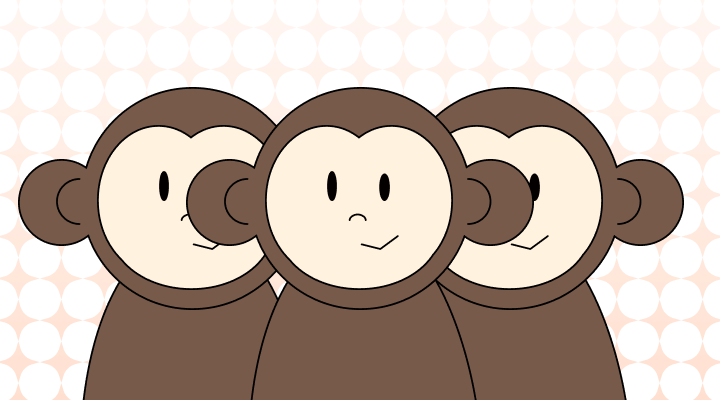"Monkeys" is the accurate and widely accepted spelling for the plural form of "monkey," while "monkies" is not a correct spelling in the English language.
The words "monkeys" and "monkies" may appear similar, but they have distinct meanings and are used in entirely different contexts within the English language.
What does monkeys mean?
"Monkeys" is the accurate and widely accepted spelling for the plural form of "monkey." Whether you're discussing one monkey or a group of them, you would use "monkeys" to refer to these fascinating creatures. Monkeys are known for their intelligence, social behavior, and adaptability to various environments. They come in different species, such as capuchins, macaques, and baboons, each with its own unique characteristics and habitats.
Example sentences
- The tropical rainforest is home to a wide variety of colorful and playful monkeys.
- The mischievous monkeys in the zoo kept visitors entertained with their antics.
- Researchers have observed that certain monkeys use tools to extract insects from tree bark.
- Monkeys are known for their complex social structures and hierarchies within their groups.
- In some cultures, monkeys are considered symbols of wisdom and cleverness.
- Tourists flocked to the national park to catch a glimpse of the elusive golden lion monkeys.
- The documentary showcased the daily lives and struggles of a troop of wild monkeys in Africa.
- It's essential to respect the natural habitats of monkeys to ensure their survival.
- Monkeys are often used in scientific studies to better understand human behavior and cognition.
- The children giggled with delight as they watched the baby monkeys swinging from branch to branch in the jungle.
Common idioms/phrases
Monkeys have inspired several idiomatic expressions and phrases in the English language, often related to their playful and mischievous behavior. Here are some common idioms and phrases that involve the word "monkey":
- Monkey business: This phrase refers to mischievous or dishonest behavior, often in a playful or sneaky manner.
- Example: "I don't want any monkey business in the office; we need to focus on our work."
- Monkey see, monkey do: This saying suggests that people tend to imitate or mimic the actions of others, particularly if they are influential or role models.
- Example: "Children often learn by example—monkey see, monkey do."
- Monkey around: To "monkey around" means to engage in playful or frivolous behavior, often when one should be more serious or focused.
- Example: "Stop monkeying around and get to work!"
- Monkey on one's back: This expression is used to describe a persistent problem, addiction, or burden that someone struggles to overcome.
- Example: "His gambling addiction is like a monkey on his back."
- Throw a monkey wrench into the works: To "throw a monkey wrench into the works" means to disrupt or complicate a plan or situation.
- Example: "The unexpected rainstorm threw a monkey wrench into our outdoor picnic."
- More fun than a barrel of monkeys: This phrase is used to describe something that is exceptionally enjoyable or entertaining.
- Example: "The party last night was more fun than a barrel of monkeys!"
What does monkies mean?
"Monkies" is not a recognized or correct spelling in the English language. The correct plural form of the word "monkey," which refers to the primate species, is "monkeys." Monkeys are mammals known for their agile, tree-dwelling nature and are found in various parts of the world. They exhibit a wide range of species and behaviors, making them a diverse group of animals in the animal kingdom.
In summary, the difference between "monkies" and "monkeys" is quite clear. "Monkies" is an incorrect spelling and should be avoided, while "monkeys" is the accurate and standard form used to describe these remarkable members of the primate family. Whether you're learning about them in science class or observing them in the wild, remember to use "monkeys" to refer to these lively and diverse animals.
Want to sound like a native speaker?
Engram’s AI-powered grammar checker makes your English sound like a native speaker’s, suggesting natural English expressions on top of fixing grammar, spelling, punctuation, word order, and vocabulary.

Reference














